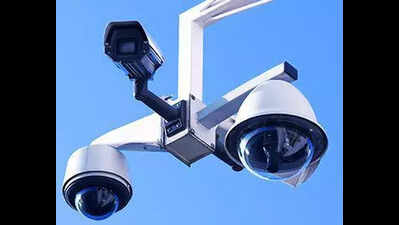- News
- City News
- mumbai News
- ‘Radar-based cameras are not overpriced’
Trending
‘Radar-based cameras are not overpriced’
Mumbai: Following reports on the purchase of 69 radar-based cameras for interceptor vehicles at an 'inflated cost' of Rs 34 lakh each instead of around Rs 8-9 lakh, a senior transport official said on Thursday that Rs 9 lakh was the price of 'laser speed guns' which were procured earlier for 263 interceptor vehicles. "You cannot compare laser speed guns with the new radar-based cameras, which is a high-end technology and more expensive than the former. It is like comparing apples with oranges," he said.
The issue came to light when transport minister Pratap Sarnaik came across complaints of radar cameras being 'overpriced' in the contracts and asked for an explanation from the transport commissioner's office. "No inquiry has been instituted so far," Sarnaik told TOI on Thursday.
The 263 laser-based speed guns were purchased through tenders for interceptor vehicles between 2021 and 2024. The contract for new radar-based cameras atop 69 new interceptor vehicles was for around Rs 20 crore plus GST, resulting in a cost of around Rs 34 lakh per vehicle, sources said. The official said: "The new contract is not just about cameras, but also the technology and infrastructure to be built up around it." He said laser speed guns had few limitations—they were was manually used by an inspector or assistant inspector on the vehicle, and one could make 25-30 challans in eight hours. In comparison, the new radar-based cameras can track 800 violations in an hour and are accurate.
The cost of the project includes capex and maintenance of advanced technology for five years. This also includes setting up a command control centre with 24 desktop facilities in RTOs. It involves AI cameras each worth Rs 3.6 lakh, radar worth over Rs 5 lakh, lithium battery (four batteries per vehicle) and UPS-related equipment worth over Rs 5 lakh, other technological devices and computerised systems, which incur additional costs, the official said.
You cannot compare laser speed guns with the new radar-based cameras, which is a high-end technology and more expensive than the former. It is like comparing apples with oranges... The new contract is not just about cameras, but also the technology and infrastructure to be built up around it
Mumbai: Following reports on the purchase of 69 radar-based cameras for interceptor vehicles at an 'inflated cost' of Rs 34 lakh each instead of around Rs 8-9 lakh, a senior transport official said on Thursday that Rs 9 lakh was the price of 'laser speed guns' which were procured earlier for 263 interceptor vehicles. "You cannot compare laser speed guns with the new radar-based cameras, which is a high-end technology and more expensive than the former. It is like comparing apples with oranges," he said.
The issue came to light when transport minister Pratap Sarnaik came across complaints of radar cameras being 'overpriced' in the contracts and asked for an explanation from the transport commissioner's office. "No inquiry has been instituted so far," Sarnaik told TOI on Thursday.
The 263 laser-based speed guns were purchased through tenders for interceptor vehicles between 2021 and 2024. The contract for new radar-based cameras atop 69 new interceptor vehicles was for around Rs 20 crore plus GST, resulting in a cost of around Rs 34 lakh per vehicle, sources said. The official said: "The new contract is not just about cameras, but also the technology and infrastructure to be built up around it." He said laser speed guns had few limitations—they were was manually used by an inspector or assistant inspector on the vehicle, and one could make 25-30 challans in eight hours. In comparison, the new radar-based cameras can track 800 violations in an hour and are accurate.
The cost of the project includes capex and maintenance of advanced technology for five years. This also includes setting up a command control centre with 24 desktop facilities in RTOs. It involves AI cameras each worth Rs 3.6 lakh, radar worth over Rs 5 lakh, lithium battery (four batteries per vehicle) and UPS-related equipment worth over Rs 5 lakh, other technological devices and computerised systems, which incur additional costs, the official said.
"The radar system was successful in Kerala, where a team from Maharashtra visited before finalising this technology. The tender process was open and transparent on Mahatender. The company getting the contract has the technical expertise to implement the system," the official said.
You cannot compare laser speed guns with the new radar-based cameras, which is a high-end technology and more expensive than the former. It is like comparing apples with oranges... The new contract is not just about cameras, but also the technology and infrastructure to be built up around it
End of Article
FOLLOW US ON SOCIAL MEDIA










